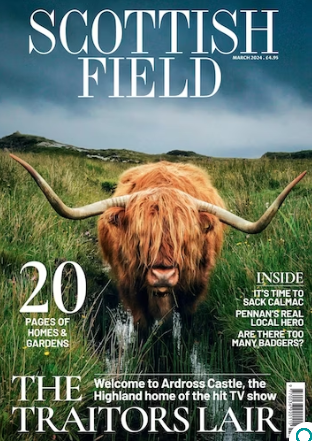The millennia-old Chinese tradition of cultural gift-giving is fascinating, as I have learned, being governed by a set of applied codes of etiquette and superstition.
More recently, South East Asian gift-giving has become increasingly intertwined with the world of high-age and rare single malt whisky. Its popularity has seen a growing interest in the giving of whisky for events such as Chinese New Year (the Year of the Tiger begins on 1 February) and for business gifting.
As founder of Beamish International, a rare whisky advisory introducing private clients to the leading Scotch whisky distilleries for the acquisition of rare whiskies, my work has provided me with a unique perspective on these practices and why rare whisky has become such a popular gift.
I have experienced first-hand how the rare whisky business has reacted to this growth of interest, working closely with buyers in the Asia Pacific region and producers in Scotland for almost a decade. It has been an extraordinary journey – being a part of the next generation of this thousand-year-old tradition at the highest end of the cultural gifting industry.
Cultural gifting, the culturally expected practice of exchanging objects to establish or maintain reciprocal relationships, is now a multi-billion-pound practice in China and other South East Asian countries and continues to grow. As globalisation marches on, gifts have expanded far beyond the customary traditional objects of tea, food or money as discerning givers have searched for truly special items to give to family, friends and colleagues, always
given with reciprocity (礼尚往来 – lishang-wanglai) in mind.

Charles Beamish and Charlie MacLean at a whisky distillery
Now, in the week leading up to the traditional gift-giving period of Chinese New Year, we are completing one of our busiest periods working with private clients to help them source and acquire the finest rare Scotch whiskies to gift to their family, friends, clients and business associates.
The value of a gift given for Chinese New Year or for other celebrations may be perceived in its two ‘forms’: tangibility and intangibility. The ideal gift will be special not just for its physical form but for a deeper meaning or experience too. Rare whisky fits the bill perfectly.
Beyond a feast for the senses – to see, smell and taste – the romance and history of the creation and maturing processes builds a covetable narrative that imbues the object with decades of meaning. A uniquely crafted decanter of whisky would produce a far more positive response than a branded item that has less meaning.
The creative process is particularly valued in gift giving traditions as recipients appreciate an object that has been made by highly-skilled artisans. The labours by generations of malt masters add a rare artisanal gravitas to a product that will ultimately be consumed for pleasure.
The planning, care and time taken to create high quality rare whiskies, along with the process to package it in crystal is akin to an artform. Like an artwork, the enjoyment of the final product evokes a physical and emotional reaction from the recipient.
The combination of perceivable and imperceivable worth in a gift is vital for the gift’s placement in the tradition of 面子 – ‘mianzi’. Mianzi is the societal perception of the recipient’s honour and standing, so a gift befitting the recipient’s position, both in monetary and respect terms, is a priority for private clients.
All gifts in Chinese gift-giving traditions are given with expected reciprocity – so when a buyer enquires about a gift to give, they usually already have an idea of the recipient’s mianzi expectations.

Charles Beamish
As European luxury products have become more familiar in Chinese gift giving practices, demand has grown from the highest end of the market for gifts that are a cut above the rest.
This has particularly come from buyers who have worked, lived or been educated in Europe and may have some knowledge of their selected industry whether it be wine, watches or whisky. Younger whiskies are no longer an option for buyers of this calibre so gifters begin to look for unrivalled provenance, rarity and quality.
The best way to achieve this is to work directly with the distilleries (instead of the secondary market), which Beamish International makes possible. Our work with the producers means that the provenance is cast-iron, ensuring that there is no risk of a client picking up a product that is anything less than legitimate.
Aside from the communal aspect of cultural gifting is the practice of ‘self-gifting’, which we have also facilitated for private clients. More than just treating oneself, this practice fits with the concept of 小确幸 – ‘xiao que xing’, a serendipitous, personal, memorable pleasure for the individual. It also allows the client to build a legacy for themselves with the purchase of unique heirlooms.
The increasing practice of purchasing rare whisky for cultural gifting in China and other South East Asian states has forged a link between the distilleries of Scotland and high income buyers on the other side of the world, and this link is at its clearest in the gift-giving exchanges of Chinese New Year.
I have been privileged to work with collectors in Asia, from novice buyers to experienced collectors, to find the perfect gifts, sourced directly from the distilleries. Although whisky only occupies a segment of the multi-billion-pound cultural gifting industry at present, we have seen it grow and very much enjoy imparting our knowledge, expertise and careful guidance to our clients on the acquisition of high quality, authentic, rare liquids for their gifting interests across South East Asia.
TAGS

